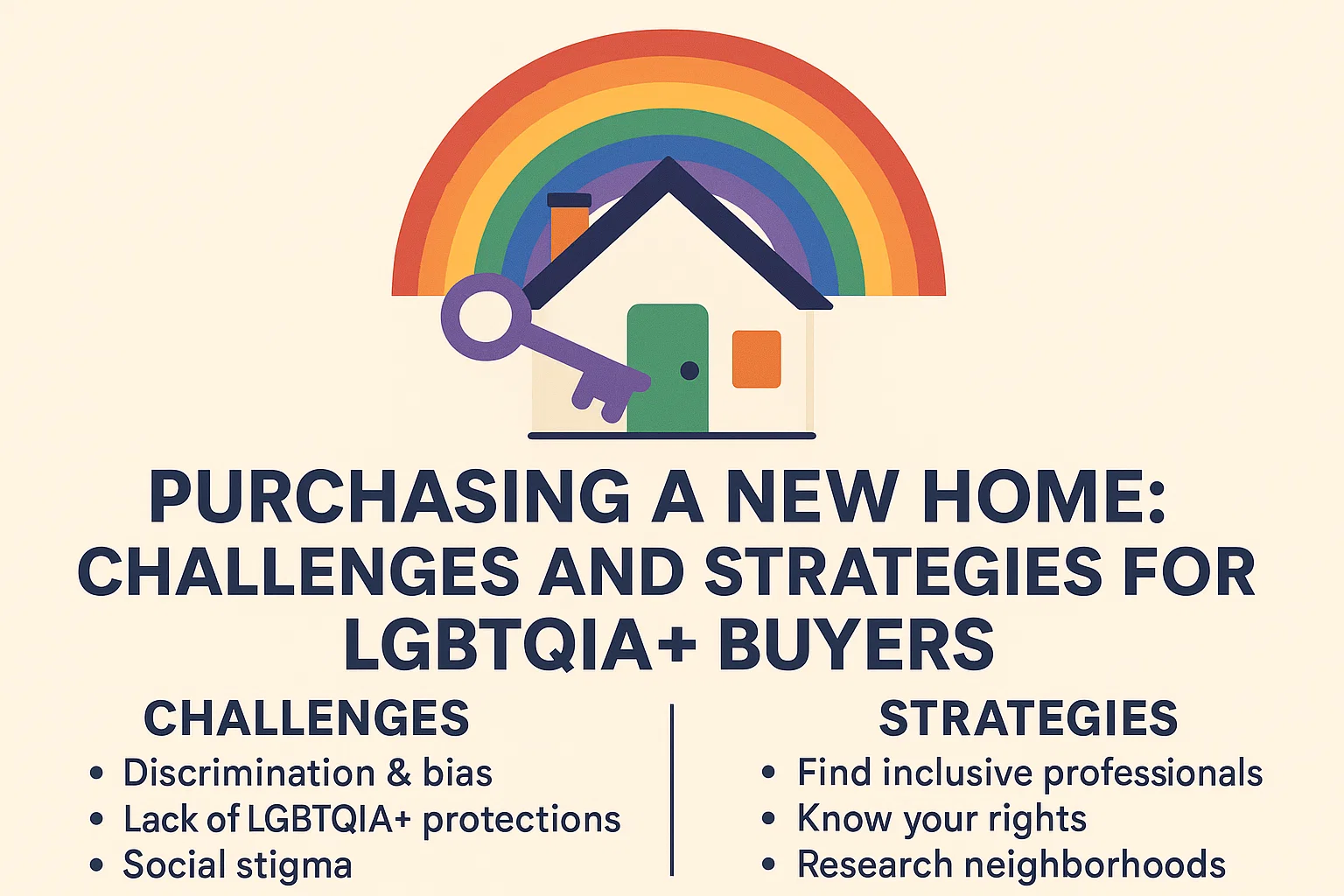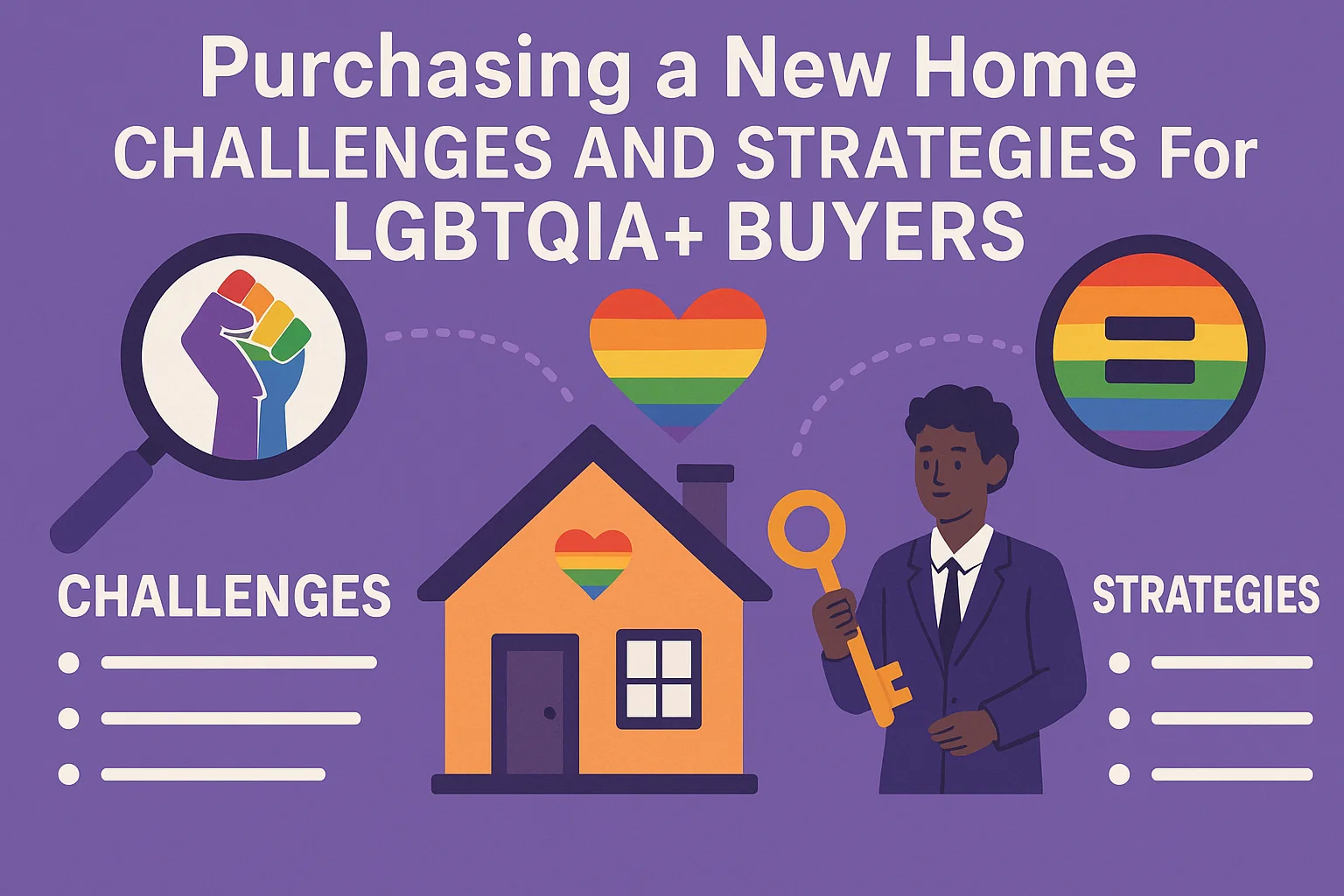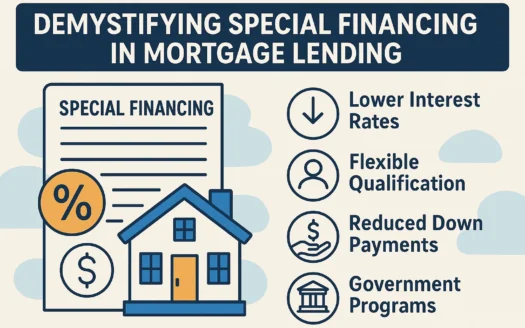Purchasing a New Home: Challenges and Strategies for LGBTQIA+ Buyers

Purchasing a New Home: Challenges and Strategies for LGBTQIA+ Buyers
Purchasing a new home is a monumental investment and an achievement for any buyer. For LGBTQIA+ individuals—encompassing lesbian, gay, bisexual, transgender, queer, intersex, asexual, and other identities—additional barriers persist in the home buying process. While federal civil rights protections have expanded over time, residual effects of historical discrimination continue to impact LGBTQIA+ communities.
Challenges For LGBTQIA+ Home Buyers
Housing Discrimination
Prior to 2025, the Fair Housing Act did not explicitly protect against discrimination based on sexual orientation or gender identity. President Biden’s 2025 executive order mandated HUD to enforce these protections, yet subtle biases persist. Discrimination may manifest as unexplained offer rejections, sudden withdrawal of agreements, or relisting homes after an LGBTQIA+ buyer expresses interest.
Income Disparities
Systemic employment discrimination and wage gaps have hindered wealth accumulation for LGBTQIA+ individuals. Data from the Center for LGBTQ Economic Advancement & Research shows 70% of LGBTQIA+ renters cited insufficient savings for down payments as a barrier to homeownership in 2025. Limited access to federal marriage benefits before 2015 further exacerbated financial challenges.
Inadequate Affordable Housing in Inclusive Areas
LGBTQIA+ buyers often prioritize inclusive communities with legal protections. However, such areas are frequently concentrated in high-cost urban centers. While affordable regions may evolve into inclusive neighborhoods, this transformation requires time.
Lack of Permanent Federal Protections
Current safeguards, including Biden’s executive order, lack codification into federal law. Without permanent legislation, future administrations could revoke these protections. The stalled Equality Act underscores the fragility of LGBTQIA+ rights.
Advice for LGBTQIA+ Homebuyers
Know Your Rights
The Fair Housing Act prohibits discrimination based on sexual orientation or gender identity. While these protections exist, advocate for permanent legislation to secure long-term rights.
Connect with Local and National Resources
- Explore HUD’s Office of Fair Housing for updated regulations and state-specific protections.
- Review the Human Rights Campaign’s State Equality Index.
- Contact the National Fair Housing Alliance or local LGBTQIA+ homeowner groups.
Identify and Report Discrimination
Document suspicious activity, such as unexplained offer rejections, and file complaints with HUD or local agencies in protected jurisdictions.
Select a Supportive Real Estate Agent
Seek agents through referrals or organizations like the National Association of Gay and Lesbian Real Estate Professionals (NAGLREP).
Financially Prepare
Work with LGBTQIA+-friendly financial planners to strategize savings, loans, and long-term investments.
Check Out the Neighborhood
Research communities for inclusivity by visiting local businesses, attending events, and connecting with potential neighbors.
Note to Real Estate Pros: LGBTQIA+ Buyers Are on the Rise
Gallup data shows 5.6% of U.S. adults identified as LGBTQIA+ in 2025, with Gen Z and Millennials driving this growth. The National Association of Realtors highlights LGBTQIA+ buyers as a growing market segment. Professionals must address systemic barriers and combat discrimination to serve this demographic effectively.
Find Your Dream Home
Despite ongoing challenges, LGBTQIA+ buyers can navigate the market by leveraging resources, understanding rights, and partnering with allies. With preparation and advocacy, homeownership in a welcoming community is within reach.




